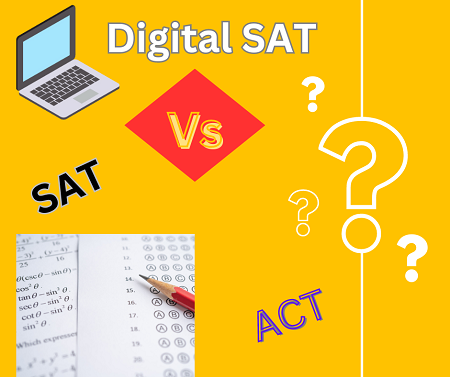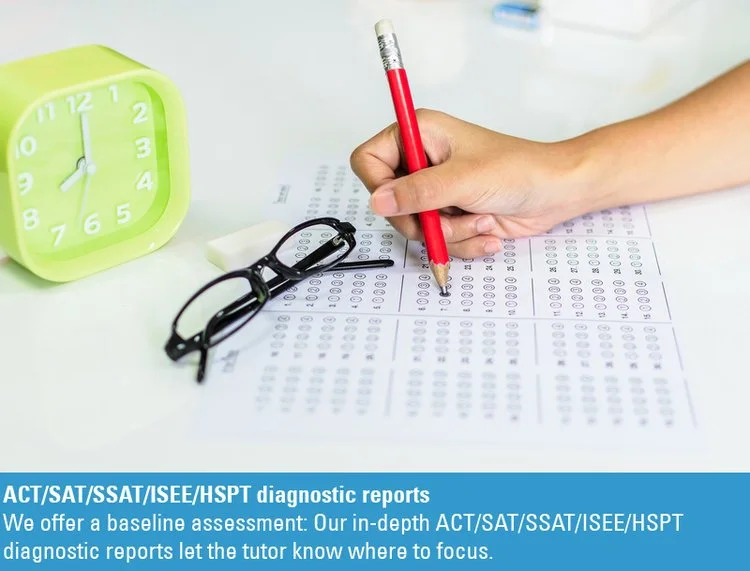Not only is the college essay a place to showcase writing skills, it's one of the only parts of a college application where a student's voice can shine through.
Unlike test scores and transcripts, the college admissions essay offers students a chance to showcase their personality.
"The essays are important in part because this is a student's chance to really speak directly to the admissions office," says Adam Sapp, assistant vice president and director of admissions at Pomona College in California.
Prospective college students want their essay, sometimes called a personal statement, to make a good impression and boost their chances of being accepted, but they have only several hundred words to make that happen.
This can feel like a lot of pressure.
"I think this is the part of the application process that students are sometimes most challenged by," says Niki Barron, associate dean of admission at Hamilton College in New York, "because they're looking at a blank piece of paper and they don't know where to get started."
That pressure may be amplified as many colleges have gone test-optional in the past year, meaning that ACT and SAT scores will be considered if submitted but are not required. Other schools have gone test-blind and don't consider such scores at all. In the absence of test scores, some admissions experts have suggested that more attention will be paid to other parts of an application, such as the essay.
But just as each applicant is unique, so are college admissions policies and priorities.
"Being test optional hasn't changed how we use essays in our selection process, and I wouldn't say that the essay serves as a substitute for standardized test scores," Barron wrote in an email. "A student's academic preparation for our classroom experience is always front and center in our application review process."
Essay writing tips offered by experts emphasize the importance of being concise, coherent, congenial, honest and accurate. An applicant should also flex some intellectual muscle and include vivid details or anecdotes.
From brainstorming essay topics to editing the final draft, here's what students need to know about crafting a strong college essay.
Step-by-Step Guide to Writing a College Application Essay
1. Explore essay prompts and select a topic.
2. Start your college essay outline before jumping in.
3. Write the essay and leave time for multiple drafts.
4. Edit and proofread your essay.
5. Submit your essay.
Getting Started on the College Essay
A good time for students to begin working on their essays is the summer before senior year, experts say, when homework and extracurricular activities aren't taking up time and mental energy.
Starting early will also give students plenty of time to work through multiple drafts of an essay before college application deadlines, which can be as early as November for students applying for early decision or early action.
Students can go online to review essay requirements for the colleges they want to apply to, such as word limits and essay topics. Many students may start with the Common App, an application platform accepted by more than 900 schools.
In addition to the main essay, some colleges ask applicants to submit one or more additional writing samples. Students are often asked to explain why they are interested in a particular school or academic field in these supplemental essays, which tend to be shorter than the main essay.
Students will want to budget more time for the writing process if the schools they're applying to ask for supplemental essays.
"Most selective colleges will ask for more than one piece of writing. Don't spend all your time working on one long essay and then forget to devote energy to other parts of the application," Sapp says, noting there may be additional questions on an application requiring thoughtfully written responses.
How Long Should a College Essay Be?
Though the Common App – which students can submit to multiple colleges – notes that "there are no strict word limits" for its main essay, it suggests a cap of about 650 words.
"While we won't as a rule stop reading after 650 words, we cannot promise that an overly wordy essay will hold our attention for as long as you'd hoped it would," the Common App website states.
The word count is much shorter for institution-specific supplemental essays, which are typically around 250 words.
How to Pick a College Essay Topic
The first and sometimes most daunting step in the essay writing process is figuring out what to write about.
There are usually several essay prompts to choose from on a college application. They tend to be broad, open-ended questions, giving students the freedom to write about a wide array of topics, Barron says.
The essay isn't a complete autobiography, notes Mimi Doe, co-founder of Top Tier Admissions, a Massachusetts-based advising company. "It's overwhelming to think of putting your whole life in one essay," she says.
Rather, experts say students should narrow their focus and write about a specific experience, hobby or quirk that reveals something personal, like how they think, what they value or what their strengths are. Students can also write about something that illustrates an aspect of their background. Even an essay on a common topic can be compelling if done right.
Students don't have to discuss a major achievement in their essay, a common misconception. Admissions officers who spoke with U.S. News cited memorable essays that focused on more ordinary topics, including fly-fishing, a student's commute to and from school and a family's dining room table.
What's most important, experts say, is that a college essay is thoughtful and tells a story that offers insight into who a student is as a person.
So, no matter what topic students choose, they'll ultimately be writing about themselves, says Ethan Sawyer, founder of the College Essay Guy website, which offers free and paid essay-writing resources. "What we think of as the topic is just the frame or the lens that we're using to get into other parts of you."
If students are having trouble brainstorming potential topics, they can ask friends or family members for help, says Stephanie Klein Wassink, founder of Winning Applications and AdmissionsCheckup, Connecticut-based college admissions advising companies. Wassink says students can ask peers or family members questions such as, "What do you think differentiates me?" Or, "What are my quirks?"
The essay should tell college admissions officers something they don't already know, experts say. Students should ensure they're writing about something that isn't mentioned elsewhere in their application, perhaps in the activities section, or expand greatly on the topic if it is noted elsewhere.
Writing the College Essay
Some experts encourage students to outline their essay before jumping into the actual writing.
But there isn't one correct way of doing things, says Sara Newhouse, senior consultant at Enrollment Research Associates and former vice president for admission and financial planning at Birmingham-Southern College in Alabama.
"Your writing process is your own," she says. Newhouse encourages students to use whatever process worked for them in the past when they completed writing assignments for English and other high school classes.
The first draft of an essay doesn't need to be perfect. "Just do a brain dump," Doe says. "Don't edit yourself, just lay it all out on the page."
If students are having a hard time getting started, they should focus on their opening sentence, Doe suggests. She says an essay's opening sentence, or hook, should grab the reader's attention.
Doe offered an example of a strong hook from the essay of a student she worked with:
"I first got into politics the day the cafeteria outlawed creamed corn."
"I want to know about this kid," she says. "I’m interested."
But Sawyer cautions that students shouldn't get so caught up in writing the perfect hook that they neglect the rest of their essay. He also says he's read some essays that were excellent overall, even though they had what he would consider mundane hooks.
Editing and Submitting the College Essay
While admissions officers try to learn about students via the essay, they are also gauging writing skills, so students want to make sure they submit top-notch work.
"The best writing is rewriting," Sapp says. "You should never be giving me your first draft."
When reviewing a first essay draft, students should make sure their writing is showing, not telling, Doe says. This means students should show their readers examples that prove they embody certain traits or beliefs, as opposed to just stating that they do.
After editing their essay, students should seek outside editing help, experts recommend. While there are individuals and companies that offer paid essay help – from editing services to essay-writing boot camps – students and families may not be able to afford the associated fees.
However, there may be options to defray the costs. Sawyer, for example, says he offers scholarships to students from low-income families that cover the cost of one-on-one essay consultations.
The availability of and level of feedback from free essay advising services vary. Some college prep companies offer brief consultations at no charge. Free essay workshops may also be available through local high schools, public libraries or community organizations. Khan Academy, a free online education platform, also offers a series of videos and other content to guide students through the essay writing process.
Colleges themselves may also have resources, Barron notes, pointing to pages on Hamilton's website that offer writing tips as well as examples of successful admissions essays. Likewise, Hamilton also holds virtual panel discussions on writing admissions essays.
Students have other options when it comes to essay help. They can ask peers, teachers, school counselors and family members for help polishing an essay.
Newhouse says it works well to have other people proofread an essay in two stages. The first stage focuses on content. Readers should look for information gaps in the essay – anything they are confused about. Once the content is nailed down, the second proofing stage focuses on style, including grammar, punctuation and spelling.
But proofreaders should not change the tone of the essay. "Don't let anyone edit out your voice," Doe cautions.
And while proofreading is fair game, having someone else rewrite your essay is not.
When an essay is ready to go, students will generally submit it online along with the rest of their application. On the Common App, for example, students copy and paste their essay into a text box.
Sapp says even though students often stress about the essay in particular, it's not the only thing college admissions officers look at. "The essay is the window, but the application is the house," he says. "So let's not forget that an application is built of many pieces."





















